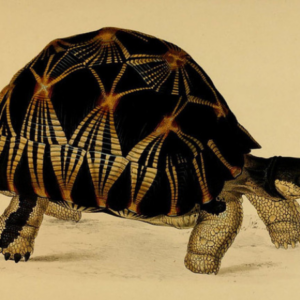Lit Hub Daily: February 17, 2021
THE BEST OF THE LITERARY INTERNET

TODAY: In 1912, science fiction and fantasy writer Andre Alice Norton is born.
- María José Ferrada remembers accompanying her father, a traveling salesman, around Chile, and how those trips inspired her novel. | Lit Hub
- “What if we turned toward sex—in its infinite variation—for advice about structure?” Helen Betya Rubinstein on sex as narrative. | Lit Hub Craft
- Emily Temple recommends 50 classic novels under 200 pages, because what is an attention span and where can we buy one? | Lit Hub Reading Lists
- “We are by turns euphoric and wistful, furious and enervated, despairing, suicidal, and dare I say the word, hopeful?” Gretel Erlich introduces Orion’s best political writing of the past 20 years. | Lit Hub Climate Change
- Howard Sherman on the Our Town spinoff you never heard about, written solely for wartime inspiration. | Lit Hub History
- Michael Patrick F. Smith finds a model in Theodore Roosevelt, fellow former pip-squeak who returned from North Dakota “husky, lusty, and brown and tough as a hickory knot.” | Lit Hub Memoir
- Turns out, asurprising number of crime-writing careers begin during maternity leave. | CrimeReads
- Back in 1885, critics called Mark Twain’s Adventures of Huckleberry Finn both a “tour de force” and “a piece of careless hackwork.” | Book Marks
- From Charles Dickens’ automaton police force to Frank L. Baum’s original Tiktok: Rebecca Morgan Frank on literature’s long-standing relationship with robots. | Lit Hub Reading Lists
- Fake Amazon reviews are for sale “in bulk” across the internet (yet another reason to shop indie). | BBC
- “The reason you careers fell for us in the first place is that we managed to be unsteady and unreliable even in the most stable and predigested situations.” A break-up letter to a writing career. | N+1
- Can historians be traumatized by violence they experience through “imagination and immersion”? | The New Republic
- On Elizabeth Barrett Browning, who was forced to live in isolation, and how to cope with living in lockdown. | The Guardian
- “You have to figure out a way to live in the world, that’s life.” Mariame Kaba discusses activism, abolition, and transformative justice. | Chicago Reader
- Bernard Ferguson on the poetic lineage of Gwendolyn Brooks and why “it seems everything—the poems, the music, the seasons—points me back to her.” | The Paris Review
- “I don’t think that any of us can say that we’re having a good time right now, can we?” Patricia Lockwood on writing and the internet. | LARB
Also on Lit Hub: Kevin Young on how the Schomburg Center became Harlem’s literary sanctuary • Theo Padnos on surviving captivity in Syria • Read from Lia Levi’s newly translated novel, Tonight is Already Tomorrow (trans. Clarissa Botsford)
Article continues after advertisement



















